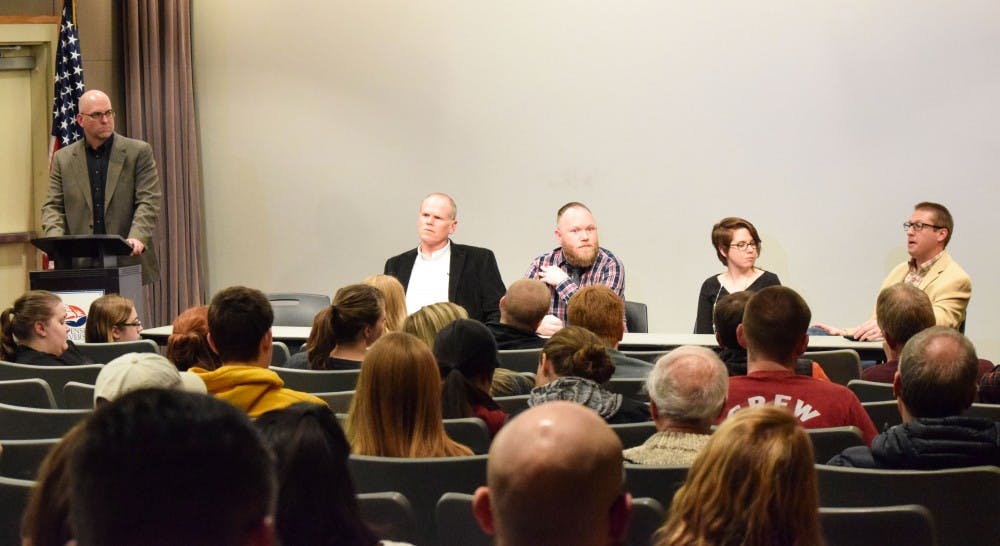Just days before International Darwin Day, Shippensburg University commemorated the day by hosting its annual Science and Religion Forum in Orndorff Theatre.
Students, faculty, community and clergy members gathered to discuss the theme of this year’s forum, “Can You Teach THAT in a Science Class? The Legality of Addressing Religious Beliefs During Evolution Instruction in Public Schools.” This year’s keynote speaker was Ronald Hermann, the earth and space science program coordinator at Towson University.
Chemistry professor Joseph Shane, biology professor Tim Maret and two high school teachers from Mechanicsburg School District all appeared on the panel after the presentation by Hermann.
Hermann told the audience that the event is held to provide insight into how science and religion should be taught in public schools.
“Evolution is a socioscientific controversy,” Hermann said.
He agrees that people have the right to believe what they want but also there is a separation of church and state within our government, and by neglecting this we would be violating the Establishment Clause.
When it comes to teaching in classrooms, Hermann said, “… what happens in science needs to be science.”
Hermann said facts are confirmed observations, and teachers, especially science teachers, should not shy away from teaching a theory that has been researched for more than 150 years.
Avoiding the subject or shutting students down out of fear of controversy is something that is done by more than 61 percent of teachers when it comes to the subject of evolution, according to Hermann.
“The theory of evolution falls within the definition of science, and schools cannot outlaw the teaching of evolution,” Hermann said.
Hermann believes students should make up their own minds when it comes to what they believe, and teachers cannot use academic freedom to teach their personal beliefs.
The panel of speakers answered questions from the crowd ranging from how to deal with teachers who are completely skipping over evolution to the very core of religion and whether it could be scientific. One audience member questioned why Darwin’s work was published immediately after it was finished.
“[Darwin] didn’t publish the work until years later due to religious factors,” Shane said.
Hermann said people’s understanding today is far beyond Darwin, and so much more has been discovered and done since his time.
“We know that we are all curious human beings and continue to try to figure it out,” Maret said. “Is there proof that the world was built in seven days? I can say we’ve done the studies and it’s impossible.”




The Slate welcomes thoughtful discussion on all of our stories, but please keep comments civil and on-topic. Read our full guidelines here.